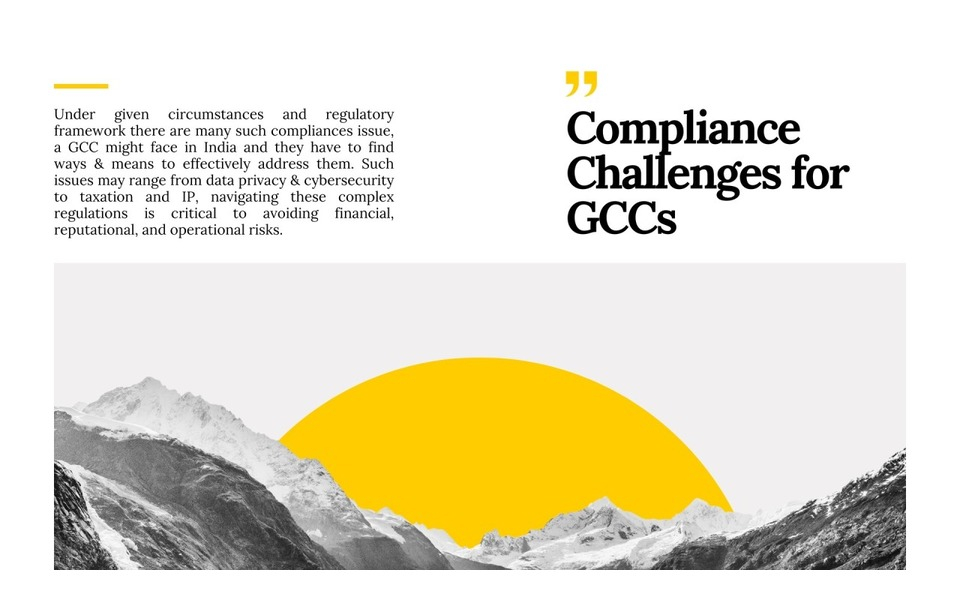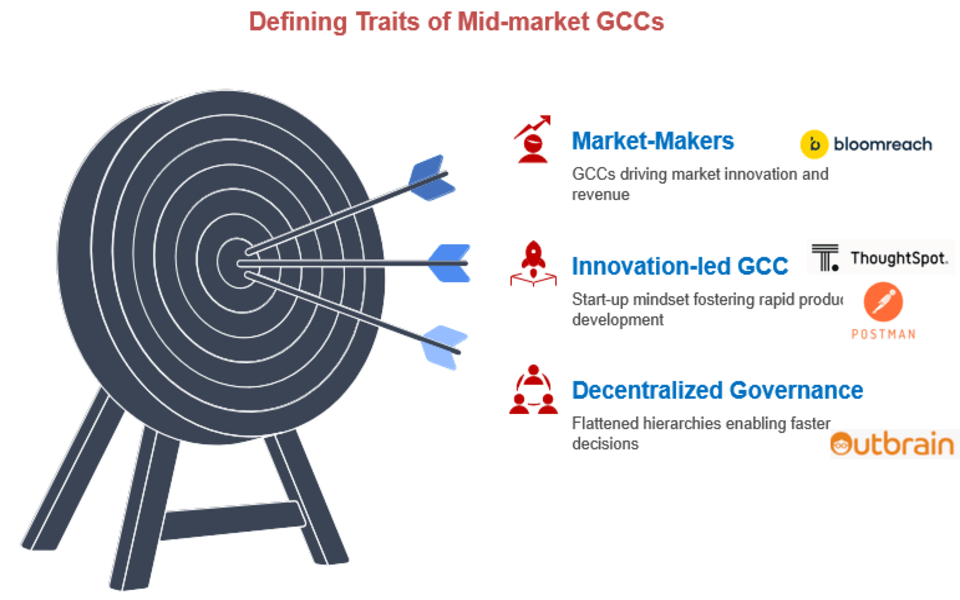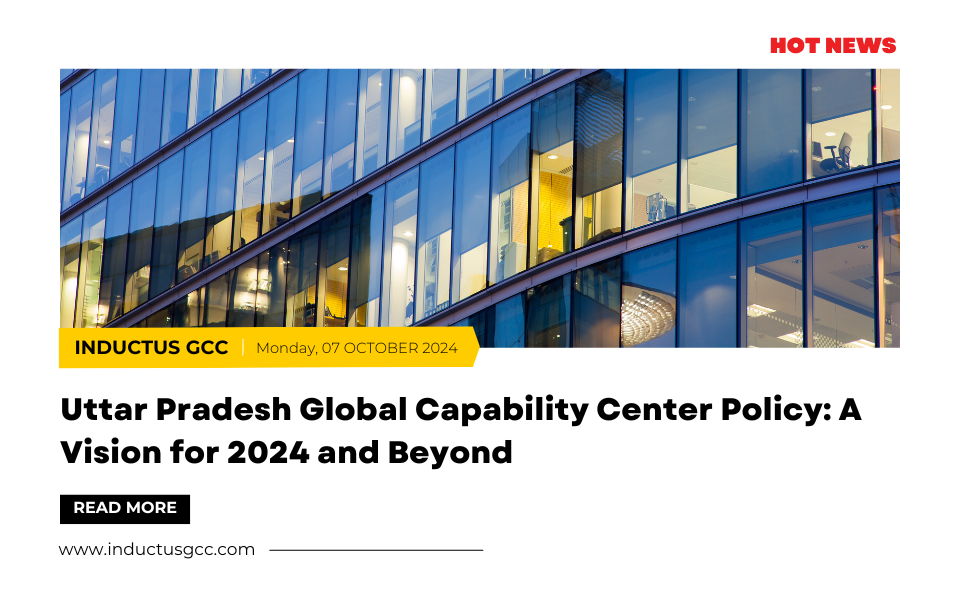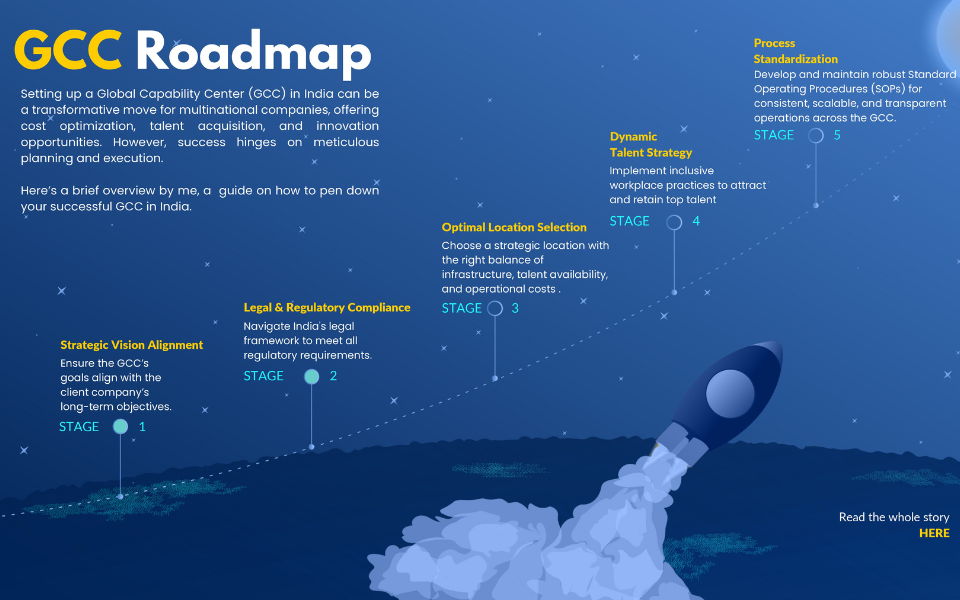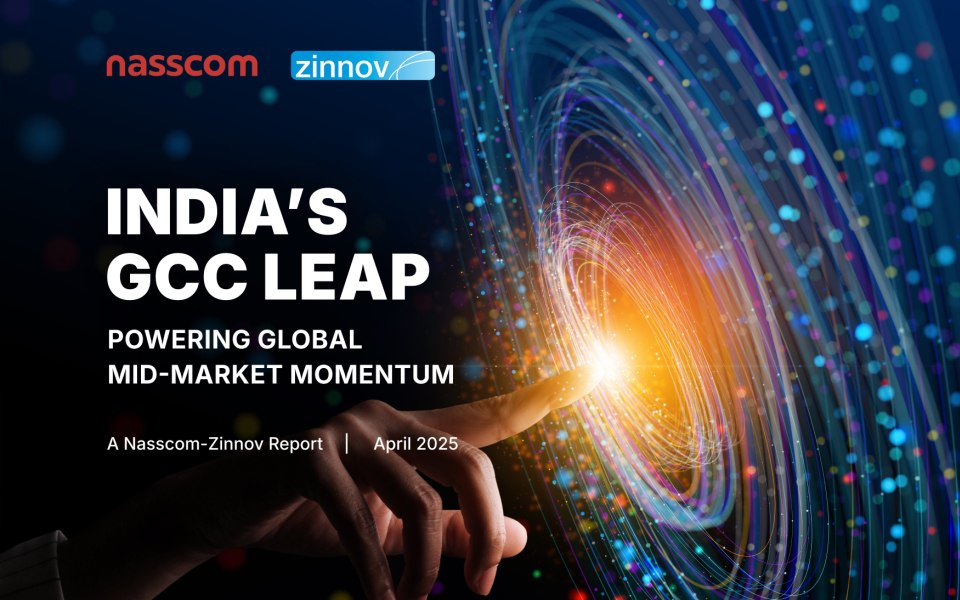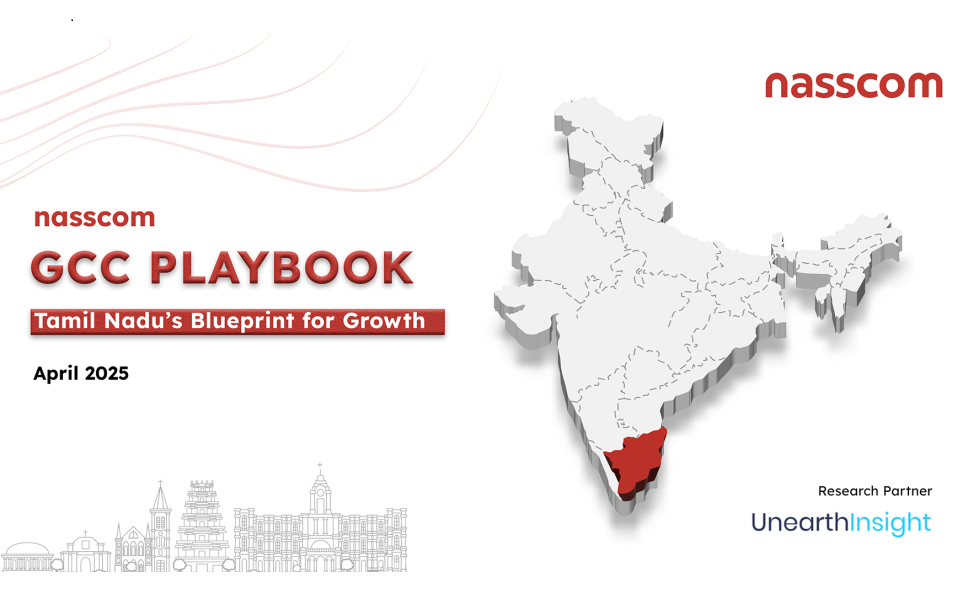Under given circumstances and regulatory framework there are many such compliances issue, a GCC might face in India, and they have to find ways & means to effectively address them. Such issues may range from data privacy & cybersecurity to taxation and IP, navigating these complex regulations is critical to avoiding financial, reputational, and operational risks.
Given herein below an overview highlighting the key compliance issues GCCs may encounter, while operating from India, and actionable steps to address them effectively.
Data Privacy and Protection
The rise of stringent global data privacy regulations such as the GDPR (2016) in the EU, the CCPA (2020) in California, and India’s DPDP Act (2023) underscores the increasing emphasis on safeguarding personal data in a digitalized economy. For Global Capability Centers (GCCs), this regulatory evolution demands not only compliance but also proactive measures to ensure resilience and trustworthiness in operations. Mitigating data privacy risks requires the implementation of robust data governance frameworks that leverage advanced techniques like encryption, anonymization, and tokenization to protect sensitive information. Appointing dedicated Data Protection Officers (DPOs) to oversee compliance and streamline adherence to diverse regulatory mandates is crucial. Regular updates to privacy policies and conducting rigorous audits further solidify an organization’s commitment to global standards. Moreover, fostering a culture of accountability through comprehensive employee training on data handling best practices and privacy laws ensures that GCCs remain agile in navigating complex regulatory landscapes. By embedding these strategies into their operational DNA, GCCs can not only comply with stringent data protection mandates but also position themselves as trusted custodians of data in an increasingly privacy-conscious world.
Cross-border data transfers
Cross-border data transfers often collide with regional laws, creating significant operational challenges, particularly for organizations operating within evolving regulatory frameworks such as the EU-US Data Privacy Framework and India’s stringent data mandates. A prominent example is the Reserve Bank of India’s (RBI) 2018 Data Localization Mandate, which required payment system operators to store payment-related data exclusively within India. While this directive aimed to strengthen security, oversight, and law enforcement access, it presented considerable hurdles for global payment giants like Visa, Mastercard, and American Express, whose systems relied on seamless cross-border data flows. Complying necessitated expensive infrastructural changes, disrupted global operations, and exposed conflicts between domestic regulations and international frameworks, leading to inefficiencies. To navigate these challenges, GCCs must adopt adaptive strategies, including implementing data localization frameworks tailored to regional compliance requirements and partnering with cloud service providers that align with local regulations. These approaches not only ensure adherence but also optimize data governance, enabling GCCs to maintain operational efficiency in a highly fragmented regulatory landscape.
Intellectual Property (IP) Protection
As Global Capability Centers (GCCs) transition from traditional back-office operations to spearheading innovation and R&D, the risk of intellectual property (IP) theft or disputes rises exponentially. The collaborative, multi-jurisdictional nature of GCC operations further complicates IP ownership and enforcement, with differing legal frameworks, limited cross-border IP protection, and ambiguous contractual agreements posing significant challenges. These complexities make it imperative for GCCs to adopt comprehensive IP management frameworks that clearly define ownership rights, responsibilities, and protections. Leveraging international conventions, such as those facilitated by the World Intellectual Property Organization (WIPO), can provide additional layers of safeguard by aligning operations with global best practices. Mitigation strategies include establishing robust IP ownership agreements and policies, implementing advanced cybersecurity measures to protect proprietary information, and conducting regular IP audits to pre-empt vulnerabilities. By embedding these measures, GCCs can not only protect their innovations but also foster a secure, collaborative ecosystem that drives sustained growth and competitive advantage.
Cybersecurity and IT Compliance
With the escalation of sophisticated cyber threats, implementing robust cybersecurity and compliance frameworks has become a non-negotiable priority for Global Capability Centers (GCCs). Regulatory mandates like the European Union’s Network and Information Security Directive 2 (NIS2) and India’s CERT-In guidelines emphasize swift breach reporting and proactive threat management. Adopting globally recognized standards such as ISO 27001 for information security or the NIST Cybersecurity Framework enables GCCs to create structured defences for safeguarding sensitive data while enhancing stakeholder trust. These frameworks not only reduce exposure to cyber risks but also help avoid regulatory penalties and ensure adherence to regional IT compliance requirements. Essential strategies include establishing a Security Operations Center (SOC) for continuous threat monitoring, conducting regular penetration tests and incident response drills, and adopting a zero-trust security model to protect digital assets. Additionally, prioritizing employee training and fostering a culture of cybersecurity awareness equips GCCs to adapt effectively to evolving threats, securing their operations and reputation in an increasingly connected world.
Tax and Transfer Pricing Compliance
Global Capability Centers (GCCs) face significant tax and transfer pricing challenges due to their multi-jurisdictional operations and compliance with global frameworks like Organisation for Economic Co-operation and Development’s Base Erosion and Profit Shifting. They must navigate complex regulations, such as ensuring arm’s length pricing for intra-group transactions and meeting extensive documentation requirements like Country-by-Country Reporting. Aggressive audits by tax authorities, evolving global tax policies like the OECD’s Global Minimum Tax, and double taxation risks further add to the compliance burden. To address these, GCCs should adopt proactive strategies, including robust transfer pricing policies, leveraging technology for real-time compliance, and maintaining transparent documentation, ensuring they remain cost-effective and globally competitive.
Regulatory Alignment in Emerging Technologies
Global Capability Centers (GCCs) leveraging advanced technologies like AI and IoT face significant challenges due to regulatory frameworks struggling to keep pace with innovation. The fragmented nature of global regulations complicates compliance, creating operational inconsistencies across jurisdictions. Ethical AI deployment intensifies these challenges, requiring GCCs to navigate issues of fairness, accountability, and societal impact while maintaining their innovation edge. Algorithmic transparency has emerged as a critical concern, with stakeholders demanding clarity in decision-making processes to ensure trust and mitigate biases. To address these complexities, GCCs must adopt proactive strategies such as staying abreast of evolving global tech regulations, embedding ethical guidelines into technology development, and fostering collaboration with regulatory bodies to shape and influence compliance standards. By implementing robust governance frameworks and leveraging interdisciplinary expertise, GCCs can align with emerging norms, safeguard their operations, and sustain a competitive advantage in an increasingly regulated technological landscape.
Conclusion
Compliance is both a challenge and an opportunity for GCCs to build trust and resilience. By addressing potential issues proactively and leveraging robust frameworks, GCCs can position themselves as reliable, ethical, and compliant global partners.




